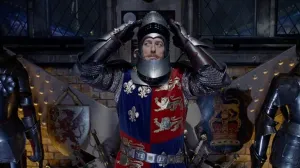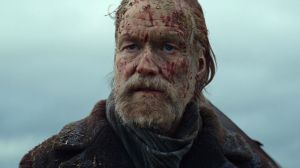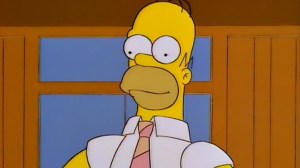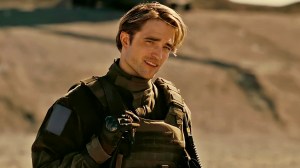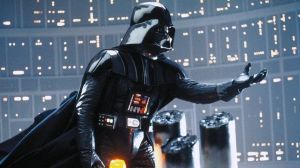When composing a film score, sometimes knowing when not to use music is just as important as knowing when to bring in the orchestra. Silence can be a powerful tool in the composer’s arsenal, especially when creating tension. Without the emotional cues of melody or rhythm, the viewer is left alone with the performances, the sound design, and their own anticipation.
Videos by ComicBook.com
Some of the most unforgettable scenes in film history were made so precisely due to their lack of music. When immersed in a story, you might not notice that something is missing, but subconsciously, you feel it, and suddenly, you’re on the edge of your seat. The absence of score can elevate a scene by building tension, juxtaposing a moment of violence, or even symbolizing a character’s internal struggle. And after the quiet, when the strings or drums or synths finally do return, they’re all the more impactful.
5) The Chestburster in Alien
Ridley Scott’s Alien is filled with tension, and the chestburster sequence is perhaps the most iconic. But did you ever notice there’s no score? Reportedly, composer Jerry Goldsmith actually wrote a piece for the moment, but in a stroke of genius, Scott dropped it. The silence means the moment can play out realistically, relying on the performances. There’s no musical cue to warn the audience that something is coming, so when Kane’s pain begins, the tone shifts dramatically, and when his chest explodes, it’s shocking.
The alien’s shriek as it’s born cuts like a knife, followed by the crew’s horrified screams and then that terrible wet clicking sound as it surveys them. In the aftermath of the ordeal, a dreadful silence follows as they consider what the hell just happened. Without a single note to tell us how to feel, we are stuck in the room with the crew, forced to watch as the horror plays out in real time.
4) Ethan’s Vault Drop in Mission: Impossible
Director Brian De Palma and composer Danny Elfman were an all-star duo who knew exactly when to go quiet. In the original Mission: Impossible’s most famous sequence, Tom Cruise’s Ethan Hunt breaks into the Langley vault, suspended by a wire. As he’s lowered into the white-walled room, however, the soundscape narrows to near silence. Notably, there’s no pulsing Mission: Impossible theme, or even a single note to underscore the tension. So, we hold our breath, as if we’re on the mission as well.
Hunt’s shallow breathing and the creak of the taut rope are among the only sounds we hear as we pray that he can pull it off. The scene reaches its apex after Hunt is yanked back up, and the knife falls toward the floor. As the knife tumbles in slow motion, all of the sound, even the ambient atmosphere, abandons us. Only when the danger passes, and Elfman’s score returns, do we finally exhale.
3) “Do I amuse you?” in Goodfellas
Featuring no original score, Martin Scorsese’s Goodfellas relies on pop music needle drops to punctuate moments. Yet one of the most quotable scenes in the entire film goes without any music at all. Instead, Scorsese allows Joe Pesci’s legendary “Funny how? Am I a clown?” monologue to play au naturel, with only the diegetic soundscape. We get clinking glasses and the jovial laughter of the men, until Pesci’s Tommy DeVito stops smiling and Ray Liotta’s Henry Hill realizes he might be in trouble.
Scorsese’s decision to forgo musical accompaniment allows the actors to determine the flow. Pesci and Liotta find their own rhythm as the scene escalates, and we’re left wondering if DeVito is about to whip out his pistol, not even aware of the missing melody. Without a score to telegraph the emotion, the scene feels volatile. DeVito is unpredictable, and there’s no music to clue us in to what’s really going on inside his head.
2) The Tavern Standoff in Inglourious Basterds
Quentin Tarantino hired composer Ennio Morricone for his seventh film, but for the tavern scene in Inglourious Basterds, the auteur opted to go sans score. As British soldiers disguised as Nazis meet a German officer, the absence of music enhances the quiet scenery of the small basement bar. The scene becomes charged with tension as we anticipate what is about to go down.
No music means that when the Major cocks his gun under the table, we can hear it loud and clear, and so can Michael Fassbender’s Lt. Archie. The power shifts dramatically each time a new weapon is revealed, and the men attempt to make their three-hand standoff look like casual dinner conversation. When the shooting finally starts, the explosion of sound is deafening in comparison. Tarantino uses silence as a pressure cooker, and when the lid blows, it’s absolute mayhem.
1) All of Cast Away
Robert Zemeckis and Alan Silvestri took a huge creative risk with Cast Away when they stripped the second act of any music. After Chuck Noland, played by Tom Hanks, crashes on the island, there’s no score, and they even purposefully dampened or removed the sound of animals or any other life on the island. Using the deafening quiet to emphasize Chuck’s isolation, Silvestri chose absence as his instrument. The subjective effect is overwhelming, and we feel stranded and alone with Chuck.
It’s not until leaving the island, after Chuck realizes he’s made it past the breakers, that the film’s original score finally kicks in. After an hour, and for Chuck, several years, of quiet, the music is cathartic, conjuring a raw emotional experience in the audience. Silvestri’s swelling strings are like oxygen after suffocation. By denying us music for so long, Cast Away forces us to feel the isolation of the island, and the glory of the subsequent escape. While minimal, Silvestri’s restrained accompaniment won him a Grammy in 2002.
Did you notice the absence of music in these scenes? Leave a comment below and join the conversation now in the ComicBook Forum!


